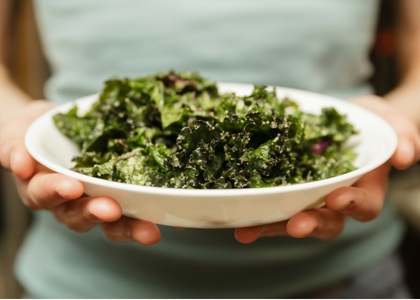
Learn More About Prebiotics: Food for Your Gut
By Claire Georgiou, Reboot Naturopath, B.HSc ND
More than a trillion healthy microbes live happily within your digestive system. They are vital for immune, nutritional and metabolic functions. Imbalances in our digestive system, also known as dysbiosis, are associated with many chronic health conditions.
Studies indicate that our gut microbiome can have an effect on how we metabolize our food and store fat. When the microbiome is healthy it will support healthy weight control, while an unhealthy dysbiotic gut can increase the likelihood of obesity and weight-related health conditions.
The gut microbiome, or the healthy microbes that take up residence in our digestive tract, have a tall order.
These microbes support a healthy intestinal lining, nutrient absorption, digestion of complex carbohydrates, synthesis of essential amino acids, supporting glucose and cholesterol metabolism, production of short chain fatty acids which act as a fuel for the intestinal cells and reduce inflammation and produce vitamin B and K.
The microbiome also supports a healthy immune system, healthy brain function and a myriad of other important health benefits.
Prebiotics are indigestible to our digestive system but they provide food and energy for the good microbes (often known as good bacteria) inside our digestive system and predominantly our large intestine. Think of prebiotics as another high-fiber food group that keep these good microflora in healthy numbers and help to provide us with the necessary health benefits.
Prebiotics include fructooligosaccharides such as insulin and galactooligosaccharides.
Some new evidence suggests that a diet high in prebiotics can be beneficial for your health. Prebiotics can help increase calcium absorption, regulate glucose metabolism and support a healthy gut transition time while reducing colonic cell inflammation, therefore reducing the risk of colon cancer and other inflammatory bowel conditions by providing fuel to reduce inflammation, and even reducing the risk of diabetes.
Certain foods in a natural, whole food diet will increase your intake of prebiotics and support a healthy gut flora.
Foods that contain prebiotics are:
- Asparagus
- Leeks
- Onions
- Garlic
- Artichokes
- Legumes
- Cabbage
- Kale
- Chicory root
- Dandelion Greens
- Bananas
- Barley
- Oats
- Apples
- Konjac root (often found in low calorie noodles and spaghetti)
- Cacao
- Flaxseeds
- Yacon Root
Recipes for increasing your prebiotic foods:
Stuffed Delicata Squash with Kale, Leeks and Chickpeas Recipe
Raw Beet, Banana & Raspberry Smoothie